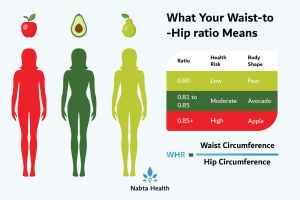What is Celiac Disease?

Celiac disease is an autoimmune disease that affects the digestive system. Children and adults with this food intolerance are unable to eat foods containing gluten, which is a protein found in rye, wheat, and barley. In people with celiac disease, eating gluten causes an immune response that damages the lining of the small intestine. Since many of the nutrients in food are absorbed through the small intestine, this can interfere with how well your body absorbs essential nutrients. In this way, celiac disease can lead to malnutrition and nutritional deficiencies.
Celiac disease is most common in people who have a family history of the disease. It is also becoming an increasingly common condition diagnosed in children. The American Academy of Pediatrics (AAP) estimates that 1 in 80 to 1 in 300 children are affected by celiac disease.
Symptoms of celiac disease
Irritability is a common symptom in infants and children with celiac disease. Poor weight gain, decreased appetite, delayed growth, and stomach pain after eating are also symptoms of celiac disease in children. Others include chronic constipation or diarrhoea, vomiting, fatigue, and foul smelling stools.
Diagnosis of celiac disease
Since the symptoms of celiac disease are similar to those found in other diseases, it can be difficult to diagnose. If you suspect your child may have celiac disease, your paediatrician will likely conduct a blood test. This screening test identifies the presence of certain antibodies that are produced by the immune system as a response to gluten. To ensure accurate blood test results, it is essential that your child is consuming a diet containing gluten. However, the common antibodies needed to make a preliminary diagnosis may not be present in children under the age of 2.
Although blood tests are very useful to screen for celiac disease, further testing is needed to make a definitive diagnosis. If the results of your child’s blood test indicate the possibility of celiac disease, a biopsy of the lining of small intestine will be performed by a paediatric gastroenterologist. The samples are analyzed for the presence of inflammation and damage. This procedure, called an endoscopy, is performed with a camera that is placed in your child’s mouth and down the oesophagus. The procedure is safe for infants and young children and is performed under anesthesia.
Treatment of celiac disease
Consuming a gluten-free diet is the only treatment for celiac disease. This typically includes avoiding all foods that contain forms of wheat, rye, and barley.
Sources:
- American Academy of Pediatrics, Celiac Disease.
- Celiac Disease Foundation, The Face of Celiac Disease.
- Children’s National Medical Center, Celiac Disease.
- National Foundation for Celiac Awareness, Celiac Disease in Children.
Powered by Bundoo®










